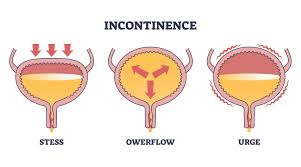Incontinence, the inability to control bladder and bowel functions, can be emotionally devastating and isolating for seniors. As a caregiver, you play a critical role in helping your loved one manage this condition with dignity. Here are some tips for providing support:
Understand the Causes
Incontinence has several potential causes, including:
- Weak bladder muscles
- Nerve damage from diseases like diabetes, Multiple Sclerosis, Parkinson’s
- Side effects of medications
- Enlarged prostate in men
- Loss of muscle tone due to limited mobility
Knowing what’s behind your loved one’s incontinence will guide the treatment approach. A doctor can run tests and recommend prescription drugs, physical therapy, dietary changes, or medical devices to manage symptoms.
Practice Compassionate Communication
Seniors often feel ashamed about incontinence. Be patient and compassionate when accidents happen. Say things like “This is not your fault. Let’s get you cleaned up.” Stay calm and reassuring. Never shame or scold them.
To help prevent future incidents, gently suggest visiting the bathroom regularly. Avoid asking “Do you need to go?” which may embarrass them. Discreetly prompt a bathroom trip every 2-3 hours.
Adapt the Bathroom
Install grab bars near the toilet for stability getting on and off. Use a raised toilet seat with armrests for easier sitting and standing. Place absorbent pads on the floors by the toilet and bed in case of leakage. Install adequate lighting so they can see.
Keep a commode chair or urinal bottle close to the bed at night. This allows easy access without walking to the bathroom.
Incorporate Protective Products
Absorbent incontinence pads, disposable underwear, and adult diapers help your loved one stay dry and comfortable. Use waterproof mattress covers to protect bedding.
Tailor the products to your loved one’s needs and preferences. Try different styles and capacities. A home care provider in Chapel Hill, NC can help advise on this as part of a toileting assistance plan.
Encourage a Healthy Lifestyle
Diet and exercise can reduce incontinence episodes:
- Avoid foods that may irritate the bladder like caffeine, carbonation, sugar, dairy, and spicy foods.
- Drink 6-8 glasses of water daily. Limit fluids in the evening to avoid nighttime accidents.
- Do Kegel exercises to strengthen pelvic floor muscles.
- Engage in low-impact activity to improve circulation and muscle tone.
A healthy lifestyle boosts overall well-being too!
Know When to Seek Additional Care
If at-home management strategies aren’t containing accidents, consider adult day programs or in-home care assistance. These services provide supervision for memory-impaired seniors so they use the bathroom on a schedule. Caregivers also assist with hygiene after episodes occur.
For severe incontinence, placement in a nursing home or memory care facility may become necessary. The 24/7 structured environment helps prevent embarrassing accidents. For more information on this, searching online for respite care near me will allow you to read about the services and amenities in greater detail to make the best decision for your loved ones.
Don’t Try to Manage Alone
Caring for a loved one with incontinence can be physically and emotionally draining. Seek support from other family members, friends, or local support groups. Get respite care occasionally to take a break.
With compassion, patience, and the right mix of products and lifestyle adaptations, you can help your loved one regain dignity and confidence. Just remember you don’t have to go it alone. Support is available.
Write and Win: Participate in Creative writing Contest & International Essay Contest and win fabulous prizes.
















